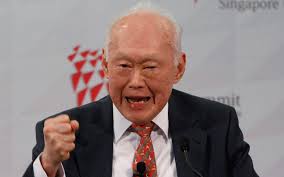Leaders need to tread the fine line between having the necessary confidence in their own abilities, and the lack of sensitivity and humility that will prevent them from successfully leading a team of other very able people.
Confidence in your own convictions
Rudolph Giuliani, mayor of New York City from 1994-2001, makes the case for a leader’s need for self-belief:
“A leader has to have the confidence to think that his decisions will be proven correct. While trying to retain humility, you must accept that the reason you’re making these decisions and other people are not is because, for now, you’re in charge and they aren’t . . . Yes, you must guard against arrogance; but if you’re doing your job and putting your motive and conscience through their paces, accept that you really do know better and can see a little further down the road than others.”
However, as Morgan McCall, author of High Flyers, developing the next generation of leaders, highlights, the personal qualities that make some people sell-confident can become liabilities when real leadership skills are needed.
A failure to bring people with you
McCall analyses the team relationships of leaders whose careers have spectacularly and unexpectedly ‘derailed’. What these failed leaders display could be summed up as ‘a failure to bring people with them’. The personal attributes most often quoted by their ex-colleagues as having been responsible for the leader’s fall from grace are: insensitivity, arrogance, betrayal of trust, over-ambition, self-centredness and the inability to build teams.
It’s a fine line: these ‘warrior’ characteristics may take people a long way. Such people will be driven, decisive, ruthless and ambitious; impressive and useful characterisitics, up to a point – in business as in battle. But when the warrior becomes a general, they need to be able to find new strengths, all of which are inclusive and trusting, not selfish and egocentric.
Fred Hassan, former Chief Executive of Schering-Plough, is brave enough to use the ‘H’ word: humility:
“Perhaps the biggest quality that I try to work on is a sense of humility, because if one keeps balance in one’s life and a sense of humility, then one becomes a better listener. You stay in tune with yourself, with your environment. You listen better, and if you can anchor yourself well with your environment, then you can design a strategy to bring about change. So it always begins with a sense of humility.”
Leaders have to believe that they are the person best-suited to make key decisions on behalf of the organization, but this necessary self-confidence can easily flip into arrogance. Successful leaders need to stop being ‘warriors’ and to become enablers, influencers and facilitators. Confidence must be balanced with humility.
Confidence and humility is further explored in 100 Great Leadership Ideas




